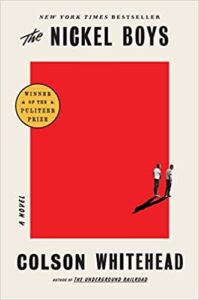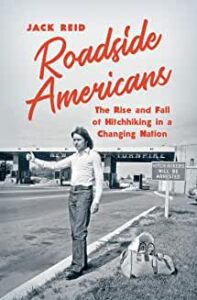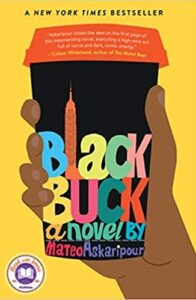from Claudine vs the Ants
Miles later, Jesse strayed off the road surface into the shadscale. He felt dehydrated, a faintness in his head, something wrong and metallic in his blood, his heart distant. He knew they had to save their water. He distracted himself by stepping with care, trying not to tread on the few tiny plants struggling to survive in the high desert. That man who wanted to take them in his car reminded him of the elders who made him ashamed because they are going to heaven and he isn’t.
Jesse, said a voice behind him that he didn’t recognize. He paused and looked around. Jenna walked on, passing him, her head bent down, the long dress swirling around her legs striding mechanically forward. He looked around himself, and the voice said, You won’t see me if you keep looking.
He resumed his march, turned his face forward and bowed his head. That was a dangerous thing you did running away from home with Jenna. It was a kind, but stern voice. Jesse was sure it was an angel.
“I know.” He whispered so Jenna would not hear. His gait slowed and he strayed a little deeper into the brush.
And it wasn’t such a great idea to hit that man with a rock.
“I know.” That had been bothering him.
He wasn’t going to heaven anyway.
“What about me?” Dry tongue tried to lick dry lips. “Will I go to heaven?”
Even if I knew, I wouldn’t tell you, the angel said, with some warmth and humor.
“What did you come here to tell me?” He had never before talked to an angel and didn’t want to offend her, but he felt entitled to know what she wanted.
You asked me to come.
That made him think, as hard as he had ever thought in his life. He was tempted to call out to Jenna and ask her what to say. But he realized that, at this point, it was between him and this angel. He was on his own.
“How can I protect her?” He kept his focus on the ground, weaving roughly parallel to the road through the shadscale.
Throw yourself in front of danger, like a soldier.
“Was Jesus a soldier?”
He threw himself in front of danger for others. You could do worse.
Suddenly, Jesse sprinted ahead as fast as his legs would carry him. He galloped past Jenna, startling her. In his head, images of Jesus in full-body armor, his Mighty Sword thrashing evil, defending the defenseless, the damned, the refugees and the afflicted. He became Jesse Almighty, with the power to tame wildness, touched by an angel to charge into the realm of bilious onrushing danger, to defend his sister, trying to find a better life for the two of them.
“Where are you going?” Jenna yelled as her brother loped away through the brush, his arm raised as if carrying an invisible lance.
“I’m going to protect you,” he cried. He wanted to get away from the angel but could feel her still there, tethered to his right shoulder like a kite on an infinitesimal string of gossamer, the air pouring through her, gently slowing Jesse’s mad dash across the desert.
“Wait,” Jenna said and began to run through the desert brush to catch up with him.
Why are you running like this? the angel asked. This is proof that deities don’t know everything.
“I’ll take care of Jenna, just don’t ask me to do any more,” he shouted. Jesse had been to church plenty enough and God was never far away in the life he had run away from. But it wasn’t any God that he had found on his own, it was one drilled into him by stern people who themselves did not seem to be happy in their faith. He remembered a day when he was a young boy chasing Jenna around in the back yard, watching her blond hair bouncing in the sunlight, her joy lifting into the sky and a cheery breeze swirling around them. He sensed then that it was the last time he would feel that way, and that he had never seen anyone else who was nearly that happy. Jesse figured that he just wasn’t clever enough to understand why that feeling had to be so precious and fleeting.
What more would I ask of you? the angel asked, snapping him back to the moment.
“You could ask me to take her back,” he yelled. “You could ask me to explain everything that I feel about her. You could ask me to follow God’s way.” In his heart, he thought, you could ask me to be like Father, but this was a prospect Jesse didn’t want to address. Especially to an angel who wouldn’t stop following him and leave him alone.
Then Jesse tripped over a rock, thumping onto the hard, grainy desert pavement, face-planted in rabbit-bush. The angel, apparently, kept going because he could no longer feel her presence. There was dirt in his mouth, which he spat out as he rose on his hands and knees. And then, a sudden relief lifted in him. He rolled over on his back. The sky was starting to get that dusky tinge of indigo and orange.
An ant crawled along his wrist. He was in their world. And had there been any ants nearby that knew what to do with fallen boys who were fleeing angels, they would have been the luckiest ants ever. Jesse felt the earth on his back, shutting off any prospect of going back, aiming him onward, incrementally, minute-by-minute, westward to a West that never gets any closer.


 Colson Whitehead
Colson Whitehead

